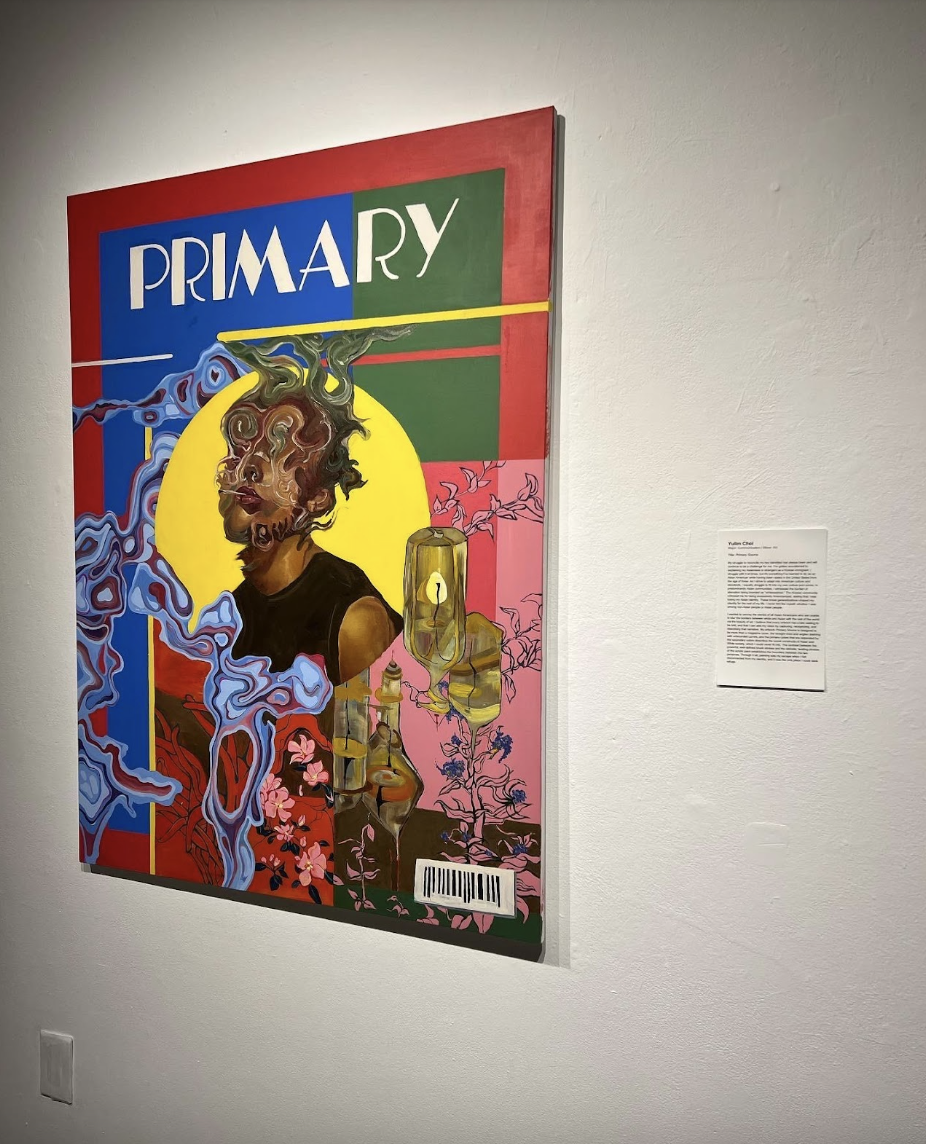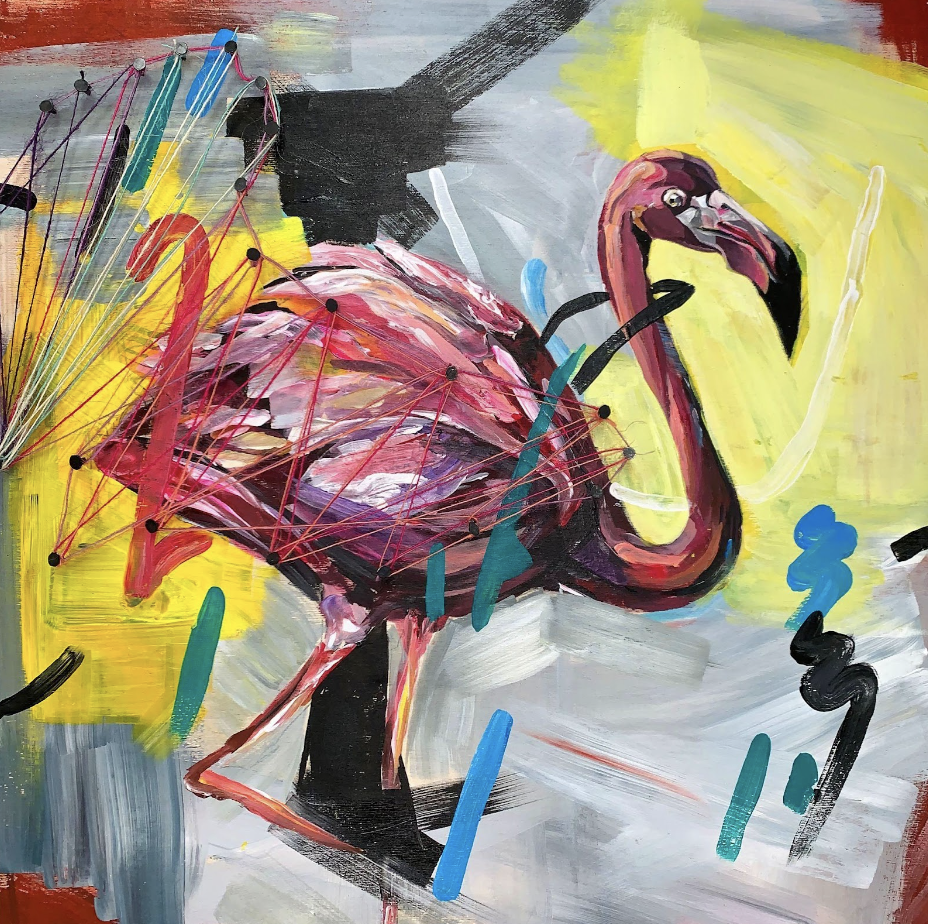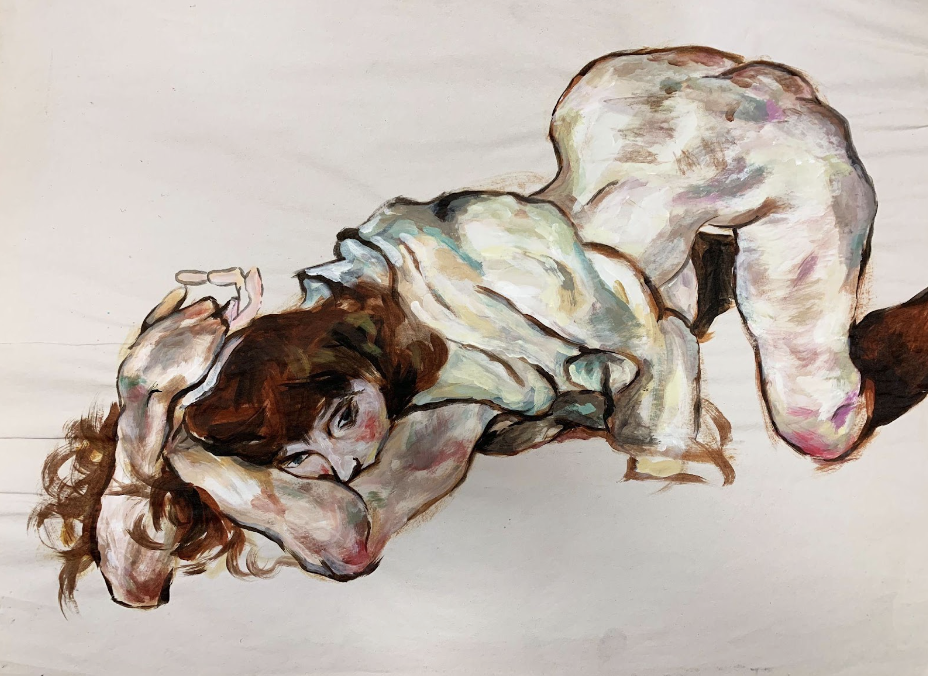By Melanie Wu
At a time when careers in art are transitioning from analog to digital graphics, many artists are deciding to adapt and adopt technology. But UC Santa Barbara student Yulim Choi continues to work with her traditional pen and paper methods of oil painting and mix media.
UCSB art student Yulim Choi. Photo by Melanie Wu.
Choi graduates this spring from UC Santa Barbara with a B.A. in Communication that includes a minor in Art. As an immigrant, she faced many language barriers growing up and had difficulty communicating with her peers. She found a way to express herself freely through art, where she felt no barriers to creativity.
In a recent interview, Choi discussed her inspirations, as well as the artistic origins that unexpectedly pushed her toward her long-term passions.
As a person with many interests, how did you discover your love for art? What do you love the most about it?
When I was young, I wanted to try a little bit of everything. It ranged from tennis, to hula dancing, to badminton, and even taekwondo. But out of all those hobbies, art has always stuck with me and it was the only thing I truly felt passionate about and found happiness in. I enjoy art because I am able to create something from nothing. There is an endless range of things I can create and it also helps me expand my imagination.
As a child, I struggled with speaking up because English was still a new language to me and I was not very outgoing with other kids my age because of the language barrier. But, my ability to paint wasn’t limited by my language barrier and I was able to comfortably express my thoughts and emotions through drawings, rather than my words.
You went to high school at the Orange County School of the Arts (OCSA). Why did you decide to go this route?
UC Santa Barbara student Yulim Choi’s artwork featured in the UCSB Glass Box Gallery.
I loved art but it was never my intention to pursue art more than a hobby or even go to an art high school. But, when I was in middle school, there was this girl I didn’t really like and she was bragging about how she got into OCSA to the whole school and was fishing for compliments. Because I was petty, I decided to apply to the school and see if I was good enough to get accepted, but never planned on going no matter the result. Surprisingly, I got accepted and my mom pushed me to go because it was a great opportunity.
You were originally a pre-biology major when you applied to UCSB, and then you changed to Communication. But you always kept your art minor. Why?
I decided to keep art as a part of my life because I always felt invested in it. I always planned for art to be a part of my future and career choices, just not a dominant part in my life. As I explored different majors I always came to the same conclusion that art has and will always continue to be a part of my life.
How did the types of art classes in your childhood, high school and college, differ and become progressive chapters in your life story?
The art classes that I took in high school helped me explore different mediums of art. It gave me the opportunity to see where my skills peak and where it needs more work. The UCSB art courses [for the Art minor] allowed me to focus on my personal style and build up my creativity. In high school, I felt like I was able to focus on my skills while college allowed me to find my personal style.
What are your favorite types of art? How has your style evolved as you, have matured?
My favorite form of art is oil painting and mix media. I feel like my style has evolved the most since my senior year of high school through now. Before, I focused a lot on details and realism, but now I am exploring abstract and contemporary art. I enjoy different styles but I find abstract art to be the most enjoyable and aesthetic.
What are your current inspirations for your work?
I usually take inspiration from visuals of different images I’ve seen and put it into my collage form until I find a composition that I like. But my ideas are never fully set because my visualization for my pieces always change. Even if I finish a painting, I go back to it later when I think of things to add or change.
What advice would you give to students who are considering pursuing art through college and postgraduate years?
As long as you feel passionate about your work, then it is always worth working hard towards.
Where do you see yourself and art in the future? Do you plan to continue onto an art career post-graduation?
Even though I don’t currently have set plans, I would like to be able to work where I can use my creativity.
Melanie Wu is a third-year Statistics and Data Science major. She conducted this interview for her Writing Program course Digital Journalism.





